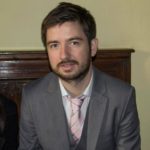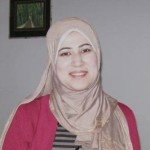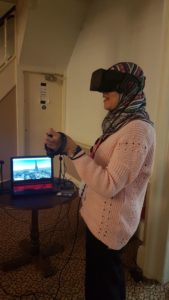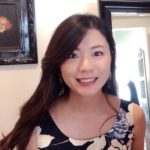 Reflecting on 2018: Experiences, Emotions, and Events
Reflecting on 2018: Experiences, Emotions, and Events
by Peter Brereton
The first few weeks of 2018 found me spending every waking hour hunched over my laptop in a cramped study in the Hiroshima countryside with only a small oil heater for company. Putting the finishing touches on my MA dissertation, I vowed that my aim for the rest of the year would be to continue the momentum I had built up during that time. Now, as the year draws to a close, it feels appropriate to pause for reflection; return to experiences, attend to emotions, and mull over events (Boud, Keogh & Walker, 1985), with the aim of clarifying in our own minds what we’ve learned and how we’ve developed. This post is my attempt to do so.
The swing of the pendulum
When it comes to my vow to myself, I feel I have been as good as my word: this year has seen me present at five conferences and have three articles published, with three more (including my first book chapter) in press and a further three at various stages of development. Reflecting on this, however, it is interesting to note that the main achievements I can immediately point to are academic in nature, rather than directly related to my roles as an academic manager, teacher trainer, or teacher. This seems characteristic of my entire year, and while it has improved my understanding of research and my writing ability, developed my awareness of literature in some key areas (e.g. teacher training, teacher demotivation, and reflective practice), and almost certainly boosted my employability in the Japanese higher education context, I feel it has had limited impact on my actual working practices.
Indeed, this year, perhaps for the first time, my teaching has very much taken a back seat. As an academic manager, my time in the classroom is limited and I usually view teaching as a welcome (occasionally unwelcome) escape from my management duties. However, looking back, I am surprised and slightly disappointed with myself that I have carried out no classroom research or formal reflection on my classroom practices this year, focusing instead on aspects of my academic development. There is no doubt in my mind that I am not a manager who teaches but rather a teacher who manages and, on reflection, I feel the pendulum has swung too far away from my classroom practices. I intend to return to my roots next year and am already making plans to reach a better equilibrium between the classroom and the office.
Alone, together
As part of this reflection, I have been thinking a lot about my experiences at conferences this year. Some were great experiences (ExcitELT, I’m looking at you), most were good, but there were one or two that I haven’t enjoyed. While I almost always leave with a few ideas to take away and reflect upon, I am no longer as inspired by conferences as I once was and have begun to approach these wonderfully social occasions with a sense of apprehension.
This has led me to question my own aims when attending conferences. In a recent Twitter discussion, it was suggested that organisers often hold as their main objective the ability for participants to walk away with “activities you can use tomorrow in class.” While I do occasionally get one or two ideas that I can adapt and adopt into my teaching, this is not something I explicitly seek out; indeed, most sessions I visit seem to be more research- or theory-based than practical. I do, however, enjoy attending presentations, and even when I make the occasional error in session selection, this often allows me some quality time to be alone with my thoughts, unimpeded by the distraction of emails, messages, and notifications.
Most people I’ve asked about the appeal of conferences say they value the chance to network, but I don’t feel like I’ve had this opportunity much at conferences. Upon arrival, it often seems like everyone already know each other, with many attendees huddled together in small groups, presenting a very physical boundary to others. I understand people’s enthusiasm to catch up with friends who they may not often see, and I certainly do not mean to criticise anyone, but to a relative newcomer such as myself this can make some conferences appear quite cliquey.
Meeting like-minded people, discussing teaching, and sharing experiences are all things I genuinely enjoy but I guess I just feel like a bit of an outsider sometimes. This is perhaps partly of my own making; I do acknowledge that I do not often initiate conversations with others at conferences. On the rare occasions when I have done so, I have had some extremely meaningful conversations which stand out as highlights of my year, long after the memories of the various presentations have faded. Interestingly, some of the best connections I made this year at conferences were actually with current colleagues. Perhaps being able to skip the small talk and having the time and opportunity to talk to people on a deeper level allowed me to develop these relationships, which have become very important to me on both professional and personal levels. I have no doubt conference-going can be extremely rewarding, yet to get the most out of the experience I feel I need to clarify in my own mind my purpose for attending and decide how I will approach any events I go along to in 2019.
Not looking at what we have to do, but what we have done
This year I have certainly become better at taking on challenges which appear, carrying out research, applying to present, and writing up papers at every opportunity. The enjoyment and professional satisfaction I derive from doing these things is a relatively new source of motivation for me, but I feel this has caused my priorities in terms of work-life balance to become misplaced. Returning from the long summer break, I was unable to tell my rejuvenated and re-energised colleagues of any news aside from the fact that I’d written two papers and prepared a presentation for an upcoming conference. At a reflective practice meeting soon after, my workload was praised by some, who expressed what sounded like guilt or regret that they didn’t “do more.” Pressure from modern society often means that we equate busy to good and free time to bad, but I feel that I have pushed the boundaries of how much I should take on and so I intend to scale back on things next year. I have dedicated insufficient time to reflection, focusing too heavily on what I have to do, rather than what I have done. This year has left me with little time to pause for breath, let alone to reflect. I have realised more than ever that, in order to be an effective reflective practitioner, I need boredom, freedom, and time spent alone.
Looking forward
As the publications roll in next year, I’m sure I will feel that my endeavours in academia this year have paid off. It’s not all about publications though, and I certainly haven’t spent enough time consciously reflecting on my teaching and managing practices. I feel I need to re-learn to sit still sometimes and allow myself to get bored again. Next year I intend to take a step back, reevaluate my priorities, and get involved only in projects I am really passionate about. I may have had a certain fear of missing out this year, but I have also learned that sometimes it’s okay to say no. Having sufficient time for reflection is important and dedicating time to writing this post has been very therapeutic.
The end of a year is always a perfect time to look back on the highlights and the lowlights, the achievements and challenges of the past twelve months, and to look forward to the upcoming year. Thanks to this post, I feel I’ve been able to do this. I encourage my colleagues around the world to do likewise.
“For last year’s words belong to last year’s language
And next year’s words await another voice.”
T.S. Eliot
References
Boud, D., Keogh, R. & Walker, D. (1985). Promoting reflection in learning: A model. In D. Boud, R. Keogh & D. Walker (Eds.). Reflection: Turning experience into learning (pp.18-40) London, UK: Routledge Falmer.

 2018: A Journey of Discovery
2018: A Journey of Discovery The best part of that day was when we got the chance to experience virtual reality ourselves and go on virtual tours to different countries through the amazing VR set of Heike Philip (one of the speakers at that event, a renowned Ed Tech trainer who co-initiated some European projects and online events on the use of technology in education). You can see me going on a virtual tour in Paris in the photo.
The best part of that day was when we got the chance to experience virtual reality ourselves and go on virtual tours to different countries through the amazing VR set of Heike Philip (one of the speakers at that event, a renowned Ed Tech trainer who co-initiated some European projects and online events on the use of technology in education). You can see me going on a virtual tour in Paris in the photo. Achievements in 2018, and What’s Next?
Achievements in 2018, and What’s Next?